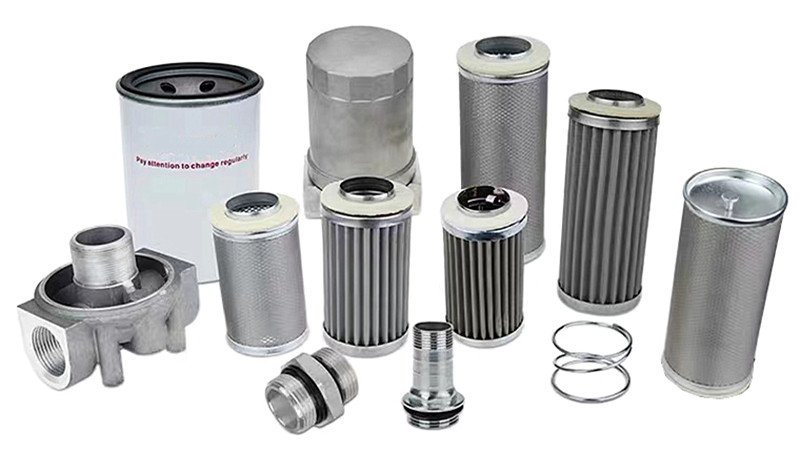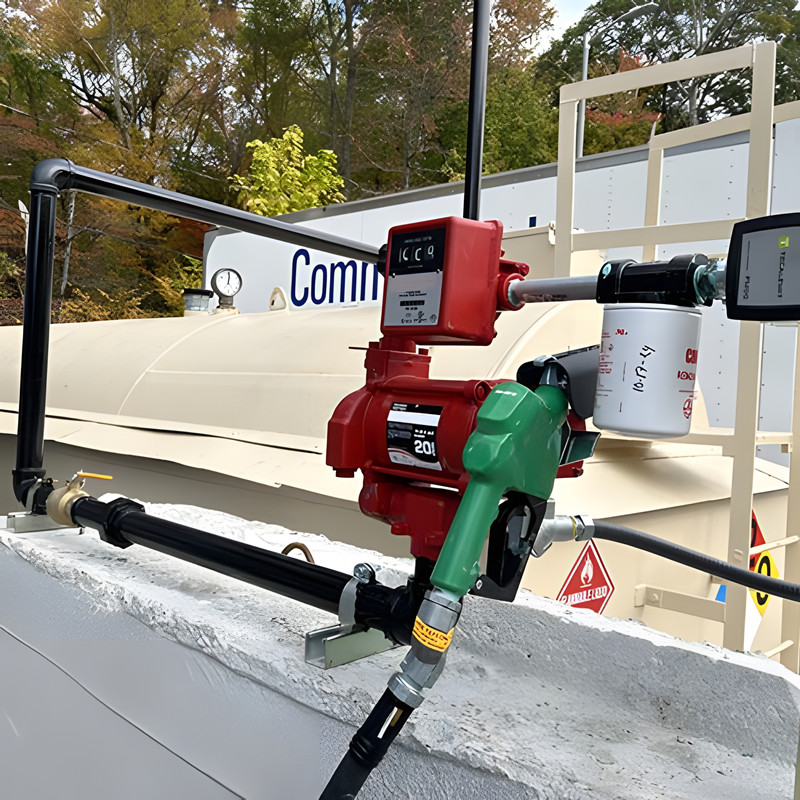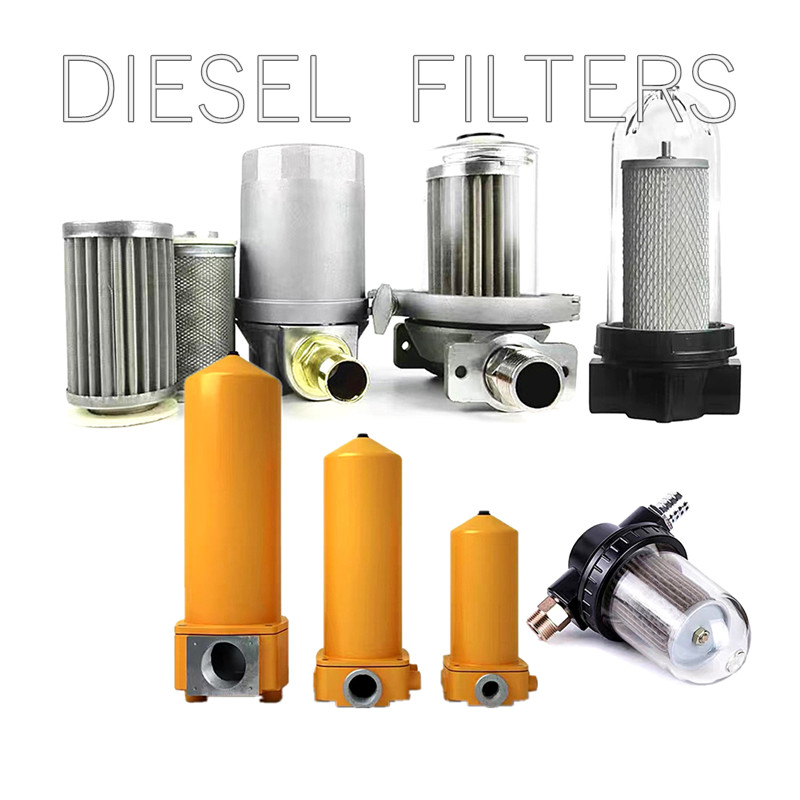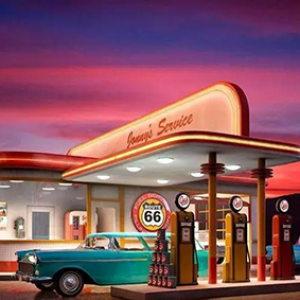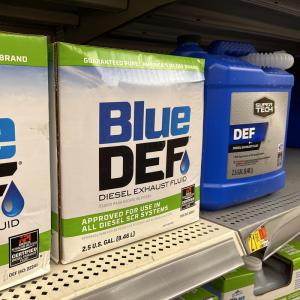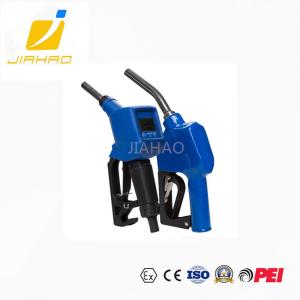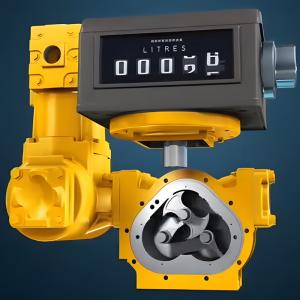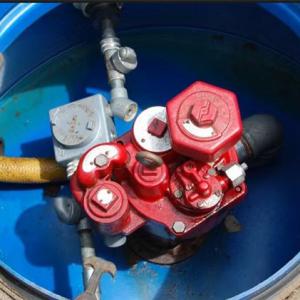Protecting Diesel Pumps: The Filter's Vital Role
Why Your Diesel Pump Needs a Filter: A Deep Dive into Diesel Pump Filters
In the modern industrial and logistics landscape, diesel fuel is a core power source, and its cleanliness directly impacts equipment efficiency, lifespan, and maintenance costs. However, during production, storage, and transportation, diesel is highly susceptible to contamination from various pollutants like water, particulate matter, and microbes. Once these contaminants enter the precise and complex diesel pump and engine systems, they can cause immeasurable damage. Therefore, equipping your diesel pump with an efficient and reliable diesel pump filter isn't an option; it's a necessary investment to ensure healthy equipment operation and mitigate operational risks.
This article will thoroughly explain why the diesel pump filter is the unsung hero of your fuel system, introduce its main types, common sizes, and materials, and reveal the crucial differences between high-quality and inferior filters. Whether you're a fuel equipment supplier, fleet manager, or an agricultural or mining operator, understanding the importance of filters and their selection criteria will help you make informed decisions, effectively protect your assets, and significantly reduce long-term maintenance expenses.
I. Why Is a Diesel Pump Filter Essential?
A diesel system is a highly precise collection of machinery, where the diesel pump, injectors, and engine components demand extremely high fuel cleanliness. Here are the core reasons why a diesel pump must have a filter installed:
-
Protecting Core Components: The precise internal components of a diesel pump, such as pistons and plungers, along with the engine's fuel injection system (like common rail systems), often have clearances of only a few microns. Even tiny particulate matter can cause wear, scratches, or even seizing of these components, leading to reduced pumping efficiency, inaccurate injection, and ultimately, engine failure.
-
Preventing Water Contamination: Water is one of the most common "killers" in diesel systems. Water can react with sulfur compounds in diesel to form acidic substances, accelerating equipment corrosion; it can freeze in low temperatures, blocking lines; and it can foster microbial growth, forming sludge that further contaminates fuel and clogs filters. A diesel pump filter (especially those with water separation capabilities) effectively removes free water from the fuel, preventing these damages.
-
Avoiding Microbial Growth: Moisture and nutrients in diesel provide an ideal breeding ground for bacteria, fungi, and other microbes. These microbes can form biofilms and viscous substances, clogging filters and fuel lines, leading to fuel degradation and even corrosion of tanks and lines.
-
Boosting Fuel Efficiency: Clean fuel ensures excellent atomization from injectors, leading to more complete fuel combustion, which in turn boosts engine fuel efficiency and reduces consumption.
-
Extending Equipment Lifespan: By removing contaminants, filters significantly reduce wear and corrosion on internal components of the diesel pump and engine, thereby substantially extending the service life of the entire fuel system and reducing the frequency of repairs and replacements.
-
Ensuring Emission Compliance: Modern diesel engines are equipped with complex emission control systems (like DPF, SCR). Contaminated fuel can cause these systems to clog or fail, affecting emission compliance, and even triggering fault codes and additional repair costs.
II. Types, Materials, and Filtration Principles of Diesel Pump Filters
Diesel pump filters come in various types, designed to handle different types of contaminants and filtration precision requirements.
-
Categorization by Filtration Medium and Function:
-
Particulate Filters: Primarily remove solid particulate impurities from diesel, such as dust, rust, and sand. They are typically made from paper, cellulose, or synthetic materials, forming porous structures to trap particles.
-
Water Separator Filters: In addition to removing solid particulates, these filters are crucial for effectively separating free water from diesel. They often use hydrophobic filter media or centrifugal separation principles to allow water droplets to coalesce and settle at the bottom collection bowl.
-
Two-Stage or Multi-Stage Filtration Systems: Some advanced systems integrate coarse and fine filtration, sometimes even including water separation, to remove different sizes of contaminants in stages. This extends the lifespan of each filter stage and improves overall filtration efficiency.
-
-
Categorization by Filtration Precision (Micron Rating): Filter precision is expressed in microns (μm); a smaller number indicates the ability to capture smaller particles, resulting in finer filtration.
-
Coarse Filtration (e.g., 30 micron or 60 micron): Typically used as pre-filters or coarse filters to remove larger particulates and most water, protecting downstream precision filters. These filters effectively block impurities visible to the naked eye or nearly visible, laying the groundwork for subsequent fine filtration.
-
Fine Filtration (e.g., 10 micron or finer): Serving as primary filters, these remove even smaller particles, ensuring the fuel meets the extremely high cleanliness required by the engine. Modern high-pressure common rail injection systems, for example, often demand 10 micron or even 2 micron or finer filtration precision to ensure proper injector function and precise engine combustion.
-
-
Categorization by Filter Media Material:
-
Paper Filters: This is the most common and economical filter media, made from specially treated cellulosic paper. They trap particles through pores, are low-cost, but have relatively limited dirt-holding capacity and water separation performance.
-
Synthetic Fiber Filters: Made from synthetic fibers like polyester or polypropylene, these offer higher filtration efficiency and superior dirt-holding capacity, performing better in water separation and typically having a longer lifespan.
-
Steel Filters: Generally refer to filters using stainless steel mesh or sintered metal as the filter media. These filters are robust and durable, often washable for reuse (depending on design), and are particularly suitable for applications requiring high strength and corrosion resistance. They offer a wide range of filtration precision, from coarser pre-filtration to finer final filtration.
-
III. Common Sizes and Specifications of Diesel Pump Filters
The size of a diesel pump filter is typically determined by its physical dimensions (diameter, length) and thread type to ensure compatibility with various diesel pump models and filter bases. Common sizes and connection types include:
-
Threaded Filters: This is the most common connection type, where the filter has threads at the top and screws directly onto the pump or filter head. Thread specifications vary widely, such as 1-inch NPT, 3/4-inch NPT, 1.5-inch BSPT, depending on the pump model and regional standards. When selecting, it's crucial to ensure the thread type and size match perfectly to prevent leaks or installation issues.
-
Spin-on Filters: The filter and housing are integrated into a single unit that spins onto a filter head, making replacement quick and easy. This design reduces contact with contaminants and is a common configuration for fuel dispensers and transfer pumps.
-
Cartridge Filters: The filter consists of a replaceable element and a reusable housing. Only the filter element needs to be replaced during servicing. This design is often more environmentally friendly and can lead to lower long-term operating costs, but care must be taken to avoid secondary contamination during element replacement.
When choosing filter size, in addition to ensuring physical compatibility, consider the flow rate requirements: larger filters generally have a greater flow capacity and lower resistance, allowing them to accommodate higher flow diesel pump systems with less pressure drop.
IV. Key Differences Between Quality and Standard Diesel Pump Filters
Filters that appear similar on the surface can have vastly different internal designs and performance. Investing in a high-quality diesel pump filter is a wise decision to protect your expensive equipment.
-
Filtration Efficiency and Precision:
-
Quality Filters: Use high-grade multi-layer composite filter media, such as proprietary synthetic or glass fibers, offering "Absolute Filtration Rating." This means they can capture most particles above a specific size. They have a large filter surface area and high dirt-holding capacity, maintaining high filtration efficiency for extended periods, even under challenging conditions.
-
Standard Filters: May use simple paper or low-density fiber materials, resulting in lower filtration efficiency and only a "Nominal Filtration Rating," meaning they only capture some particles of a specific size, and their efficiency can be unstable. Their dirt-holding capacity is poor, leading to quick clogging and reduced flow, potentially "starving" the fuel system.
-
-
Water Separation Capability:
-
Quality Filters: Possess superior water separation technology, effectively removing both free and emulsified water from diesel and safely collecting it in a bottom bowl for easy drainage. This is critical for preventing water-induced corrosion and microbial growth in the fuel system.
-
Standard Filters: Have weak or no water separation capabilities, allowing water to pass through and enter the fuel system, posing serious potential hazards.
-
-
Bypass Valve Design:
-
Quality Filters: Typically equipped with an internal bypass valve. When the filter clogs, causing excessive pressure differential, the bypass valve automatically opens to ensure fuel still reaches the engine, preventing engine "starvation." While this sacrifices filtration, it acts as a protective design, signaling the user to replace the filter.
-
Standard Filters: May lack a bypass valve. If they clog, fuel supply is cut off, potentially leading to engine stall, damage, or equipment failure.
-
-
Structural Integrity and Sealing:
-
Quality Filters: Feature robust casings that can withstand high pressure without deforming or rupturing. Seals (O-rings, gaskets, etc.) are thick and made of superior materials, ensuring a reliable seal across various operating pressures and temperatures. This prevents fuel leakage or unfiltered fuel from bypassing the filter, crucial for maintaining filtration effectiveness and safety.
-
Standard Filters: May have weaker casings that risk deformation or bursting under high pressure. Seals might be thin or made of inferior materials, prone to hardening or cracking during use, leading to fuel leaks that cause waste and safety hazards.
-
-
Lifespan and Replacement Frequency:
-
Quality Filters: Due to their high dirt-holding capacity and durability, they have a longer service life, reducing replacement frequency and downtime, leading to lower long-term operating costs.
-
Standard Filters: Have a shorter lifespan, requiring frequent replacements, which increases maintenance costs and operational hassle.
-
V. Choosing the Right Diesel Pump Filter for Your Business
Selecting the correct diesel pump filter isn't a one-size-fits-all solution; it requires customization based on your specific application and equipment requirements. Here are some recommendations:
-
Understand Your Fuel System: Clearly identify the specific fuel cleanliness requirements of your diesel pump and engine (e.g., common rail systems need 2 microns or finer filtration). Consult your equipment manufacturer's recommendations.
-
Evaluate Environmental Factors: Consider the quality of diesel available in your region, as well as climatic conditions (e.g., extreme cold or humidity, which impacts water separation needs).
-
Consider Flow Rate Requirements: Based on the flow rate of your dispenser or pump, choose a filter that meets or exceeds this flow to avoid excessive pressure drop.
-
Prioritize Quality and Brand Reputation: Opt for manufacturers with a strong reputation in the industry, specializing in fuel filtration solutions. They typically provide detailed product specifications, performance data, and reliable technical support.
-
Establish a Regular Inspection and Replacement Schedule: Even the best filters require periodic inspection and replacement. Set up a sensible maintenance plan, replacing filters according to manufacturer recommendations or based on actual fuel cleanliness observations (e.g., observing water levels in the collection bowl or significant flow reduction).
Conclusion: The Diesel Pump Filter – A Small Investment for Big Returns
The diesel pump filter, seemingly an unassuming component in your fuel system, plays a decisive role in the long-term health of your equipment and your business's bottom line. Neglecting the importance of the filter can lead to costly repairs, downtime, and operational inefficiencies.
Whether you're a fuel equipment supplier providing high-quality dispensing solutions to your customers, or a manager of a fleet or industrial facility striving to optimize operating costs and extend equipment lifespan, investing in and selecting the right diesel pump filter is a shrewd strategic decision. It offers immense returns for a relatively small outlay – clean fuel, stable performance, extended equipment life, and ultimately, significant economic benefits. Let the diesel pump filter be the most reliable guardian of your fuel system, ensuring your business runs efficiently and continuously.
